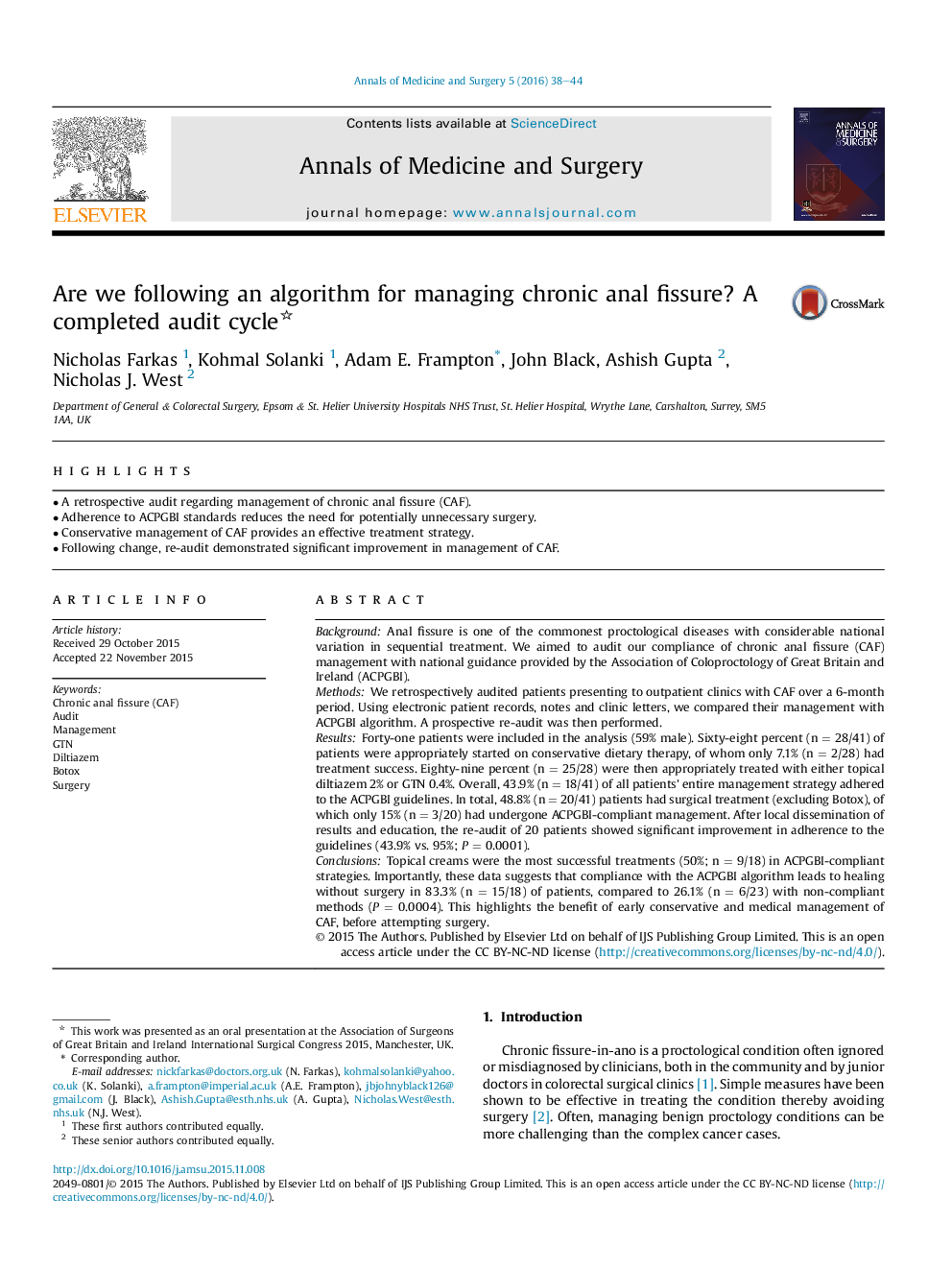| کد مقاله | کد نشریه | سال انتشار | مقاله انگلیسی | نسخه تمام متن |
|---|---|---|---|---|
| 4195290 | 1608923 | 2016 | 7 صفحه PDF | دانلود رایگان |
• A retrospective audit regarding management of chronic anal fissure (CAF).
• Adherence to ACPGBI standards reduces the need for potentially unnecessary surgery.
• Conservative management of CAF provides an effective treatment strategy.
• Following change, re-audit demonstrated significant improvement in management of CAF.
BackgroundAnal fissure is one of the commonest proctological diseases with considerable national variation in sequential treatment. We aimed to audit our compliance of chronic anal fissure (CAF) management with national guidance provided by the Association of Coloproctology of Great Britain and Ireland (ACPGBI).MethodsWe retrospectively audited patients presenting to outpatient clinics with CAF over a 6-month period. Using electronic patient records, notes and clinic letters, we compared their management with ACPGBI algorithm. A prospective re-audit was then performed.ResultsForty-one patients were included in the analysis (59% male). Sixty-eight percent (n = 28/41) of patients were appropriately started on conservative dietary therapy, of whom only 7.1% (n = 2/28) had treatment success. Eighty-nine percent (n = 25/28) were then appropriately treated with either topical diltiazem 2% or GTN 0.4%. Overall, 43.9% (n = 18/41) of all patients' entire management strategy adhered to the ACPGBI guidelines. In total, 48.8% (n = 20/41) patients had surgical treatment (excluding Botox), of which only 15% (n = 3/20) had undergone ACPGBI-compliant management. After local dissemination of results and education, the re-audit of 20 patients showed significant improvement in adherence to the guidelines (43.9% vs. 95%; P = 0.0001).ConclusionsTopical creams were the most successful treatments (50%; n = 9/18) in ACPGBI-compliant strategies. Importantly, these data suggests that compliance with the ACPGBI algorithm leads to healing without surgery in 83.3% (n = 15/18) of patients, compared to 26.1% (n = 6/23) with non-compliant methods (P = 0.0004). This highlights the benefit of early conservative and medical management of CAF, before attempting surgery.
Journal: Annals of Medicine and Surgery - Volume 5, February 2016, Pages 38–44
